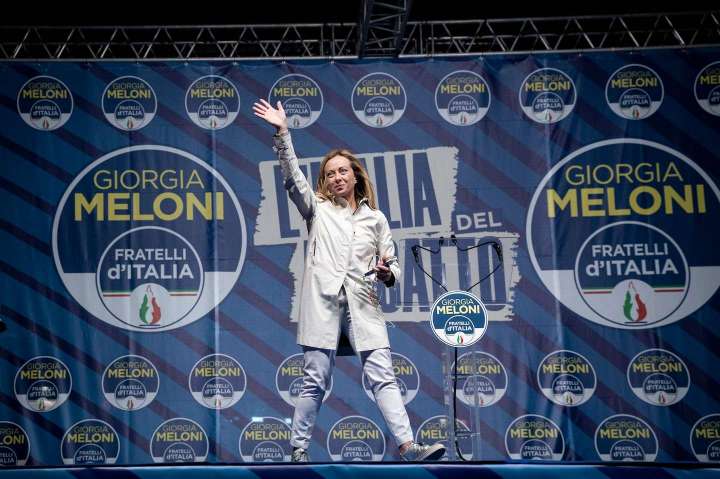Whether or not it prevails in last Sunday’s Swedish elections — results are too close to call — the strong showing of a right-wing bloc whose top vote-getter is a party with roots in neo-Nazi ideology is a troubling turn. Even more stunning would be what polls and political analysts are now predicting in Italy’s elections on Sept. 25: the outright victory of a far-right coalition whose history, values and policies pose a direct challenge to European unity, an outcome Russian dictator Vladimir Putin would celebrate and try to exploit.
As Europe tilts right, Putin is heartened

Sweden is a small country whose shock at Russia’s invasion of Ukraine set it on a path to membership in NATO. Its domestic social problems — a spike in gang and gun violence that many Swedes associate with migrants — have impelled the rise of the right-wing bloc, especially the misleadingly named Sweden Democrats (whose founders included white supremacists) that received roughly 20 percent of the vote. If the bloc prevails, it would be a mistake to include that party in the government.
Italy is a much bigger country, and its elections portend what might be a far graver problem for Europe. As things stand now, the Italian politician whose party tops the polls, Giorgia Meloni, could become the first extreme-right politician to lead a major euro-zone economy, a seismic event. By elevating her, Italy would marginalize itself in Europe.
Ms. Meloni’s party, Brothers of Italy, is rooted in segments of Italian society that lionized Benito Mussolini, the World War II fascist dictator whom Ms. Meloni herself once openly admired. She has recently positioned herself as an outsider, mainly by keeping her party out of the broad coalition government led by former prime minister Mario Draghi, which collapsed in July. That, along with an ostensibly pro-traditional family platform that attacks immigration and LGBTQ rights, has formed the basis for her ascent — along with a flatlining economy and the splintering of the center-left. Preposterously, she has vowed a naval blockade to keep migrants from landing on Italian shores. In fact, a greater threat to Italy’s future is the hundreds of thousands of youths who leave to find employment, not the tens of thousands of migrants who arrive to seek it.
Ms. Meloni has lately toned down her rhetoric, incentivized, perhaps, by the $200 billion in pandemic relief funds Italy expects from the European Union. She has also been unsparing in attacking Russia’s campaign in Ukraine, and Mr. Putin himself. Worryingly, however, two of her key coalition partners, former prime minister Silvio Berlusconi and former deputy prime minister Matteo Salvini, have taken squishier positions. A week ago, Mr. Salvini questioned Western sanctions on Russia, suggesting they might hurt Europe more than Russia.
That talk is a balm to Mr. Putin. As his army reels in the face of Ukraine’s counterattack, the Russian strongman has intensified his energy squeeze on Western Europe, which is bracing for shortages of natural gas to heat homes and power businesses this winter. The prospect of mounting discord over sanctions in a key euro-zone economy might be Russia’s best chance to blunt the sanctions and improve its flagging fortunes. Italians should think twice before handing Mr. Putin such a gift.






